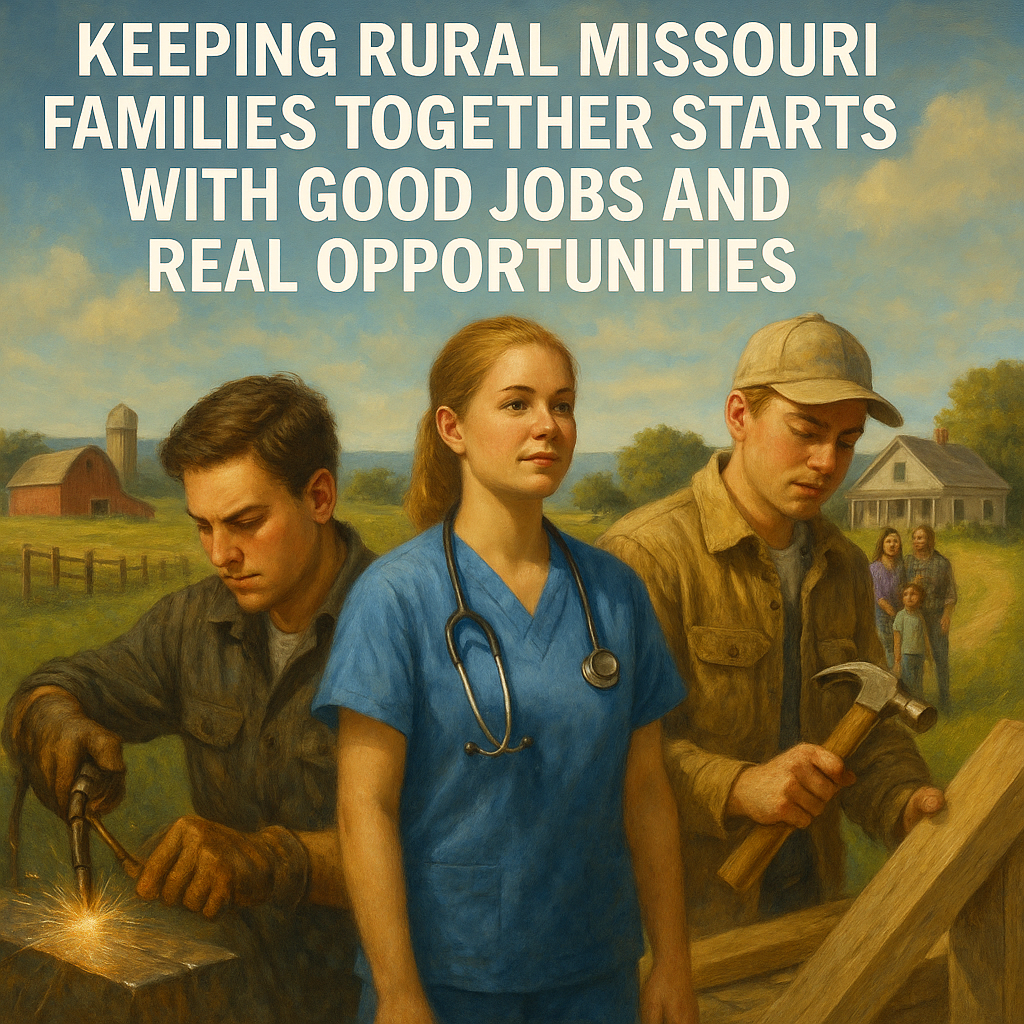Tag: apprenticeships
-
Keeping Rural Missouri Families Together Starts With Good Jobs and Real Opportunities
We’re losing young folks in rural Missouri—not because they want to leave, but because they can’t find good jobs close to home. Let’s fix that with better training, apprenticeships, and opportunities that support families.
Written by
